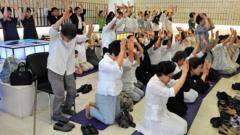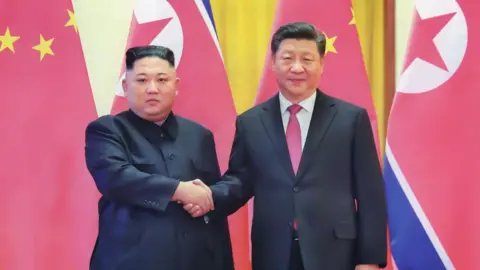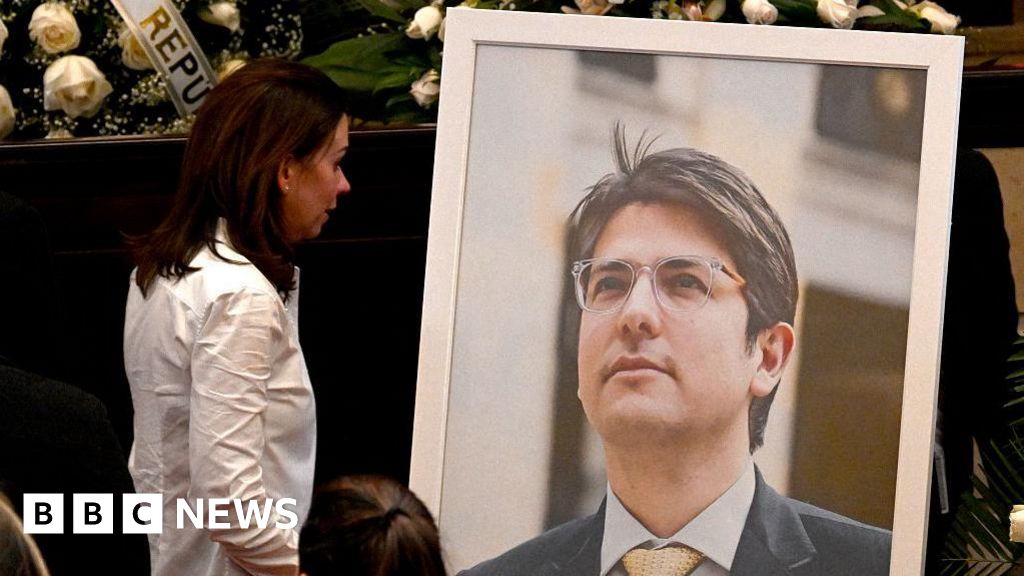The Unification Church, widely known as the "Moonies", is facing significant repercussions following a court ruling that mandates its disbandment in Japan. This decision comes in the wake of escalating scrutiny after the assassination of former Prime Minister Shinzo Abe in 2022, where the alleged perpetrator cited grievances against the church due to its financial impact on his family.
The Japanese education and culture ministry argued for the dissolution, accusing the church of exploiting its followers through manipulation for substantial donations and financial sacrifices. While the organization intends to appeal this ruling, the Tokyo court's order removes its tax-exempt status and mandates asset liquidation, though the church is permitted to continue its operations in the country.
Authorities discovered that the church had coerced members into making purchases of high-cost items, claiming these actions were linked to their spiritual well-being. The investigation involved nearly 200 individuals who reported being victimized by the church’s tactics, highlighting a pattern of financial exploitation.
Originating in South Korea, the Unification Church has maintained a presence in Japan since the 1960s. Its name is derived from its founder, Sun Myung Moon, and it has previously been embroiled in controversies related to its teachings on marriage as a pathway to spiritual salvation, famously orchestrating mass wedding ceremonies for thousands of couples.
In 2023, around 200 former followers sought restitution amounting to nearly $39 million, alleging they were forced to make donations. Investigations revealed notable connections between the church and several ruling party lawmakers, prompting the resignation of four ministers. An internal review by the ruling Liberal Democratic Party revealed that 179 out of its 379 lawmakers had interacted with the church, either through attending events or accepting donations, which shocked the political landscape in Japan and raised concerns about the influence of religious organizations in governance.
The fallout from Abe’s assassination appears to have intensified scrutiny on the Unification Church, presenting a challenging crossroads in Japan regarding religious freedom and governmental accountability.
The Japanese education and culture ministry argued for the dissolution, accusing the church of exploiting its followers through manipulation for substantial donations and financial sacrifices. While the organization intends to appeal this ruling, the Tokyo court's order removes its tax-exempt status and mandates asset liquidation, though the church is permitted to continue its operations in the country.
Authorities discovered that the church had coerced members into making purchases of high-cost items, claiming these actions were linked to their spiritual well-being. The investigation involved nearly 200 individuals who reported being victimized by the church’s tactics, highlighting a pattern of financial exploitation.
Originating in South Korea, the Unification Church has maintained a presence in Japan since the 1960s. Its name is derived from its founder, Sun Myung Moon, and it has previously been embroiled in controversies related to its teachings on marriage as a pathway to spiritual salvation, famously orchestrating mass wedding ceremonies for thousands of couples.
In 2023, around 200 former followers sought restitution amounting to nearly $39 million, alleging they were forced to make donations. Investigations revealed notable connections between the church and several ruling party lawmakers, prompting the resignation of four ministers. An internal review by the ruling Liberal Democratic Party revealed that 179 out of its 379 lawmakers had interacted with the church, either through attending events or accepting donations, which shocked the political landscape in Japan and raised concerns about the influence of religious organizations in governance.
The fallout from Abe’s assassination appears to have intensified scrutiny on the Unification Church, presenting a challenging crossroads in Japan regarding religious freedom and governmental accountability.





















